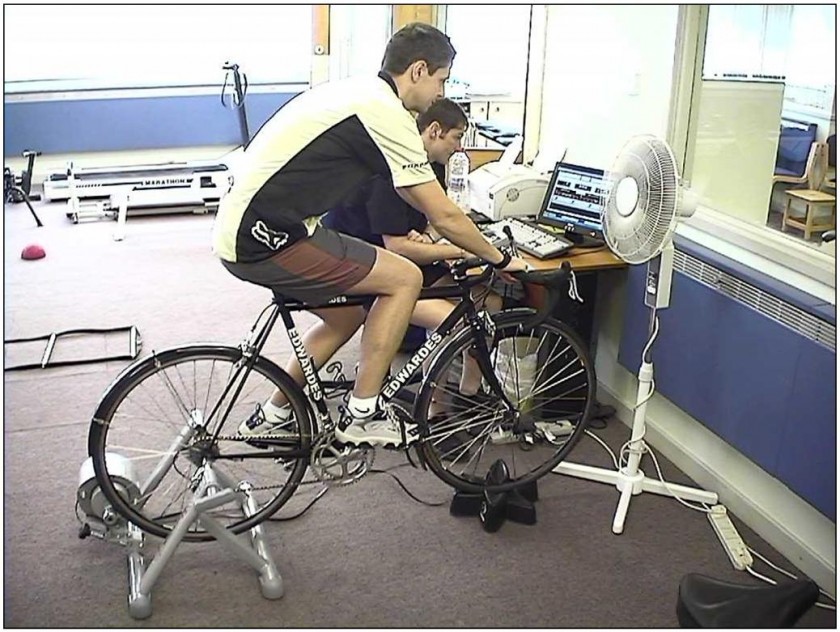London Ambulance Service CRU Health & Fitness Screening
by Tom Lynch
London Ambulance Service
London, England
The purpose of pre-selection screening is to assess the individual's medical / physical fitness to perform the duties of a cycle responder, and comprises three stages.
PRE-APPOINTMENT QUESTIONNAIRE
All candidates will be sent a health screening questionnaire at the time of application, the purpose of which is to determine whether the individual has a predisposing medical condition which will either affect their ability to perform the full range of duties or which may be made worse by performing the duties of a cycle responder.
MEDICAL
Candidates who have been successful at the short-listing stage will then be required to undertake a medical. This will incorporate:
- Vision testing;
- Blood pressure and pulse measurements;
- Lung function test
Further enquiries will be made into candidates' past medical history or present symptoms of respiratory, musculoskeletal, vascular and cardiac illness. Consideration will also be given to the candidate's general health / lifestyle (smoking/diet/current levels of exercise) and vaccination history.
PHYSICAL FITNESS TESTING
Candidates who successfully pass their medical will be required to attend physical fitness testing at Crystal Palace Physiotherapy and Sports Injury centre. Testing will be done in three phases and will evaluate the relative skill, endurance and speed of each applicant. At the end of testing, a rank will be assigned to each rider from one (the best) to ten (the worst) in each different phase.
At the conclusion of testing a report will be prepared for each applicant which will summarise the findings and give information on heart rate, power, VO2, speed, etc.
Prior to the testing, candidates will be given a pre-exercise medical questionnaire to ascertain their suitability to participate in each phase.
The three phases of testing are as follows:
Skills Test. Each applicant will be timed around an obstacle course that will sufficiently test a range of skills both on and off the bike. There will be a penalty system for any mistakes made, which will be added to the overall time of the applicant. The skills test will be conducted in groups of three or four in the morning and the afternoon prior to the endurance and speed tests.
Incremental Endurance Test. The incremental test is carried out on a stationary cycle using a computerised programme to assess the rider's athletic parameters by using an incremental but not maximal test. The program plots heart rate as a function of power, and predicts the rider's VO2 or oxygen uptake. The endurance test has four stages:
Stage 1 - Warm Up
The test starts with a five-minute warm-up, pedalling at 100 watts. At the end of this stage, the rider will be suitably warmed up to continue on to Stage Two, and the baseline parameters are recorded by the computer.
Stage 2 - Incremental Stage
In this phase, 25 watts of power are added every minute to increase the pedalling load and therefore also the rider's heart rate. This continues throughout this phase of the test until the rider's frequency equals or exceeds his or her target heart rate in the previous 30 seconds.
Stage 3 - Maintenance of Cardiac Frequency
At the end of stage two, the rider must continuously maintain their heart rate to within +/- 3 beats of their target heart rate for a further 10 minutes. The computer will automatically adjust the load on the trainer to ensure the cardiac frequency is maintained at the target level.
Stage 4 - Warm Down
The rider completes the test by doing 10 minutes of easy cycling to warm down.
Speed Test. At the completion of the endurance test, the test applicant will then be required to complete a one kilometre time trial in as fast a time as possible. The purpose is to ascertain their maximum sustainable speed over a short distance and is an indication of the anaerobic threshold of the applicant. This is a near maximal test.
After testing is completed, the rider will be given a sheet of general stretches to work through and complete the warm down. The rider is allotted a 10 -15 minutes warm-down period on one of the gym mats.
HERNE HILL VELODROME
Candidates appointed to the unit having been successful at interview will be required to attend a coaching and education day at Herne Hill Velodrome, comprising track sessions in the morning and classes in the afternoon.
This test was developed through a joint effort by the London Ambulance Service Cycle Response Unit and the Crystal Palace Sports Medicine Centre. The testing parameters were established through measurements collected by the original members of the CRU. There was a conscious effort on the parts of the developers to ensure that the performance standards were objective, measurable, and based upon real-world conditions that a member of the CRU is likely to face. This test has been used to ensure the safe operations of CRU members, both while on patrol and while responding.
© 2004 IPMBA. This article also appeared in the Spring 2004 issue of IPMBA News.

